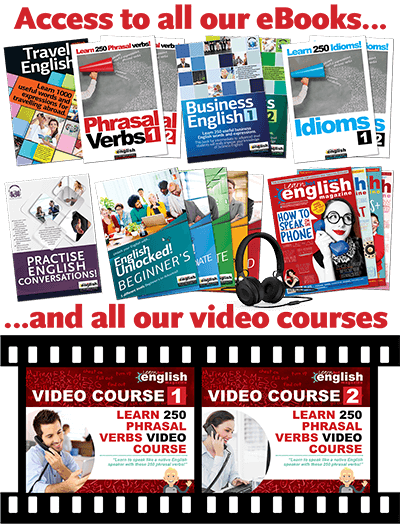How to Pass an English Exam – The 10 Best ways!
This is the second part of our mini-series on how to pass English exams. In a previous blog entry https://learnhotenglish.com/how-to-prepare-for-an-english-exam-the-6-best-ways/, we looked at preparing yourself for how to pass an english exam.
This included a 9-month plan to build up your vocabulary and increase your listening, speaking and reading skills. In this article, we’re focusing on the actual exam.

1. Find out about the exam!
Most exams test the four main skill areas: reading, writing, listening and speaking. However, every exam is different. So, you need to find out as much about the exam as you can. Get past papers, do some online research, buy an up-to-date course book based on the exam, find top tips on the exam, read the examiners’ reports (notes on how students did in exams), or talk to other people who’ve actually taken the exam.
What are some of the questions you’ll need to answer?
How long is the listening section? How many parts are there to the Reading section? How is the speaking part carried out? The more familiar you are with the exam, the easier you’ll find it on the actual day.

2. Do some practice tests!
About three months before the exam, you’ll need to start doing lots of practice tests. There are many websites that offer free samples. Simply type the name of your exam into a search engine and start downloading.
Do the tests. Then, check your answers against the model answers. Make sure you do the practice tests under test conditions, trying to complete each section within the time allocated. During the last week, do a test a day so you’re fully prepared.

3. Arrive in good time!
On the day of the test, have a good breakfast or lunch and relax for a few hours before going to the test centre. Arrive in good time so you aren’t flustered.

4. Read the instructions!
Read over all the instructions carefully. See how much time you’ve got and make sure you plan to complete all the sections in the test. Be careful not to spend too long on any one section. The most important thing is to complete everything in the exam.

5. Trust your instincts!
While you’re doing the exam, trust your instincts. Sometimes an answer will jump out at you as either correct or incorrect. Once you’ve chosen your answer, don’t change it after following your instinct.
6. Guess!
If there are multiple choice questions, guess as a last resort! Never leave a blank space. Remember, if there
are four options, you’ve got a 25% chance of getting the answer right if you guess.

7. Prepare to read! (the reading section)
■ Before you start reading the text, look at the title, the pictures and anything else that might help you understand what it’s about. This will get you thinking about the topic and the type of information that might appear in the text, and it will help activate any pre-existing knowledge you might have of the topic.
■ Read over the text quickly to get a feel for it. Then, go back and read it more closely. Don’t panic if at first glance it appears to be really complicated. Difficult texts can be understood after reading over them a few times.
■ Don’t try to translate the text! Translating vocabulary and sentences wastes a lot of time. If you don’t know a word, look at the context of the sentence and the words around it.
8. Prepare to listen! (the listening section)
■ Once again, look at the title, the pictures and anything else that might help you understand what the listening text might be about.
■ Read the questions first. But once the recording starts, just focus on listening. If possible, write a few key words while you’re listening to help you remember what you’ve just heard. For example: “expensive car, accident, police station”. This will help you answer the questions afterwards.
■ Be sure you know how often you’re going to listen to the text. If you can listen to a text more than once, use the first listening to answer the questions and the second one to check your answers and deal with missed questions.
■ Concentrate while the recording is playing. If you don’t know the answer to a question, guess. Then, carry on listening to the recording. Don’t look back at previous questions while the recording is playing or you’ll get lost.
■ Focus on the general meaning of what people on the recording are saying, and don’t worry about understanding specific words.
9. Plan your writing! (the writing section)
■ Make a short plan of what you’re going to write and make sure it’s relevant to the question.
■ Leave sufficient time to check your work. Go over your text at least twice, checking for different mistakes each time. For example, if you tend to make mistakes with verb endings, check these first, then start checking for any spelling mistakes.
■ Use the language you know and don’t try to make it too complicated.

10. Speak up! (the speaking section)
■ Speak clearly and calmly – never rush. Take your time, breathe deeply and relax.
■ Can’t remember how to say a particular word? don’t spend too long over it. Try to describe it in a different way or even say something different. Remember, the exam is to test your level of spoken English – the examiners aren’t too interested in what you’re actually saying in terms of the content.
■ If there’s another candidate with you, don’t just repeat what they say. Show what YOU know.
■ There will be probably be some preparation time, make sure you think about all the questions you’re going to try to answer. Don’t spend all your time on the first one.
■ Don’t understand a question? say so.
Good luck with your English exams!
Get the PDF of this article here – how to pass exams part II 131 FINAL
Official exams
Here’s some information on some of the main English language exams.
KET (Key English Test)
Cambridge exam that is a basic level qualification. It’s designed to test your ability to communicate in simple situations. The exam consists of three papers: Reading and Writing, Listening and an oral examination.
PET (Preliminary English Test)
This Cambridge exam is an intermediate level qualification in English. The exam consists of three papers: Reading and Writing, Listening and an oral examination.
FCE (The First Certificate in English)
Upper intermediate level exam. It is widely recognised as a good indicator that the speaker is competent in English. It can be used for work or study purposes. The exam consists of 5 parts: Reading, Listening, Use of English, Writing and Speaking.
CAE (The Certificate in Advanced English)
An advanced English exam. It’s for those who wish to study in English-speaking universities, improve career opportunities, or emigrate to the UK or Australia. The exam consists of five parts: Reading, Listening, Use of English, Writing and Speaking.
CPE (The Certificate of Proficiency in English)
One of the most advanced English language exams for learners who have an extremely high level of English. The exam consists of five parts: Reading, Listening, Use of English, Writing and Speaking.
TOEFL (The Test of English as a Foreign Language)
A widely accepted standard of proficiency for non-native English speakers who want to study in the USA. The test consists of four parts: Reading, Listening, Speaking and Writing.
TOEIC (The Test of English for International Communication)
This exam is for those who need English for work purposes or international business. The test consists of four parts: Reading, Listening, Speaking and Writing.
BEC (Business English Certificate)
These are exams based on business English that are designed to test the skills you need to succeed in an English-speaking working environment. There are three versions:
■ Preliminary: an intermediate-level qualification.
■ Vantage: an upper-intermediate level qualification.
■ Higher: an advanced level qualification.
The test consists of four parts: Reading, Listening, Speaking and Writing.
(The International English Language Testing System -IELTS )
There are two versions of the IELTS exams:
■ Academic for those who want to study in English-speaking universities – IELTS
■ IELTS General Training for general English at work or in social settings, and for those who are interested in migrating.
Test consists of four parts: Reading, Listening, Speaking and Writing.
Now is the time to really improve your English!
Click here to get your subscription to Learn Hot English magazine!



